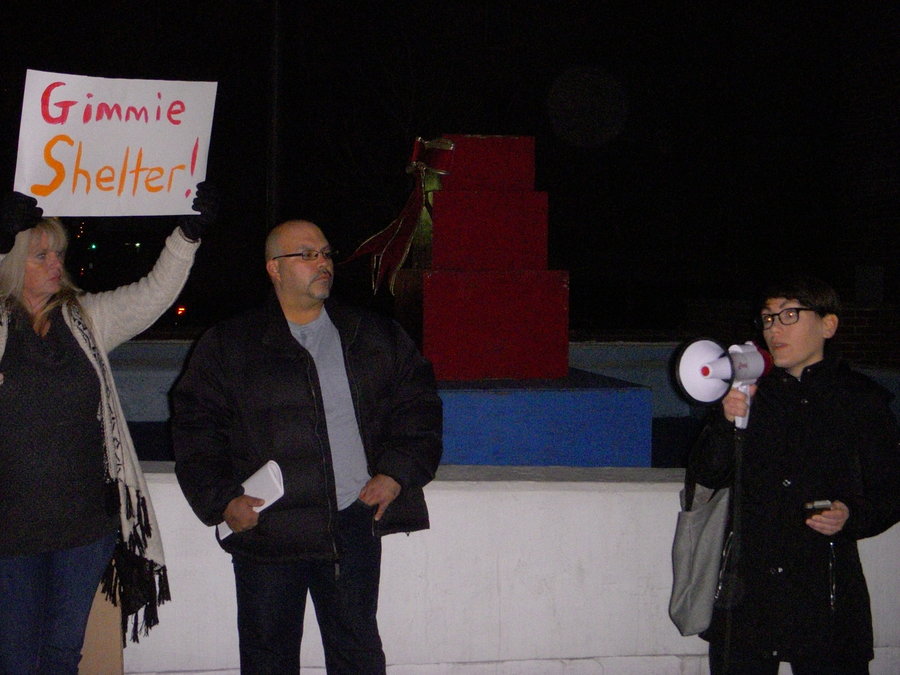After last month’s vote by the Bayonne City Council to put the city’s animal control contract up for bid, two animal control services in the county are again vying for the contract. Liberty Humane Society (LHS) was originally awarded the contract in 2014. In December of 2015, the city switched to New Jersey Animal Control and Rescue (NJACR), with city officials citing concerns about LHS’s ability to address nuisance wildlife. Disgruntled citizens held protests outside city hall. Only eight months into NJACR’s contract, which expires on November 30, 2017, LHS looks to be winning the battle of public opinion. The new Request for Proposals (RFP) dictates a two-year, $90,000 maximum animal control contract, and outlines eleven new requirements. Proposals are due by September 7 at 10 a.m.
Peter Franco, a Bayonne resident who has been outspoken against NJACR said in an email, “I believe this [RFP} is an improvement from the previous RFP,” citing its requirement to disclose shelter holding capacity in writing and to provide a copy of its current contract with a state-sponsored animal shelter where animals will be placed.
Irene Borngraeber, executive director of Liberty Humane Society, said her nonprofit has some advantages over a for-profit service. “As a nonprofit we can raise additional funds, and residents can get better services that the municipality wouldn’t otherwise be able to afford,” she said, referring to her organization’s ability to accept grants and volunteers. Those services include low-cost spaying and neutering, a low-cost clinic for preventive vaccine, a pet-owner assistance program, which provides educational resources for owners whose pets have behavioral issues, and pet therapy work.
LHS has room for 150 cats and 55 dogs; 60-70 percent of its shelter intake is cats. LHS is the animal control and sheltering provider for Hoboken and the sheltering provider for Jersey City.
Geoffrey Santini, owner of NJACR and a certified animal cruelty investigator, said that he intends to fight the city’s decision, according to online reports. In recent years, his reputation took a hit after the Union City Feral Cat Committee posted a 23-page report urging North Hudson towns to drop his company for not having its own shelter. However, in February 2016, he announced that New Jersey Humane Society, a nonprofit he founded in 2013, would open its own “no-kill” shelter in West New York.
“In an ecosystem, the problem is with resources. If you’re creating an environment that provides food, shelter, and safety, you’re going to have wild animals that live there.” – Irene Borngraeber
____________
Grey area
The biggest criticism of the Liberty Humane Society, and the reason it lost its contract in the first place, was in its dealings with nuisance wildlife, which Borngraeber said animal control should not be in the business of handling. She has a naturalist’s perspective on urban wildlife. She said that determining whether an animal is a nuisance is a “grey area,” between residents not wanting an animal, and the animal causing a threat.
“You can’t divorce civilization from nature,” she said. “There is friction in many communities in how to live in conjunction with wildlife.” She urges residents to view their communities as ecosystems. She says most animals deemed to be a nuisance are simply scavengers, and the problem has nothing to do with human’s ability to get rid of them, but rather with their ability to stop giving them food. “In an ecosystem, the problem is with resources,” Borngraeber said. “If you’re creating an environment that provides food, shelter, and safety, you’re going to have wild animals that live there. Our job as urban dwellers is to make our environments inhospitable [for unwanted animals].” She urges residents to be more careful with leaving garbage out, and cites a garbage disposal system that does not account for wildlife as a major factor in creating animal nuisance problems.
Rory Pasquariello may be reached at roryp@hudsonreporter.com.
